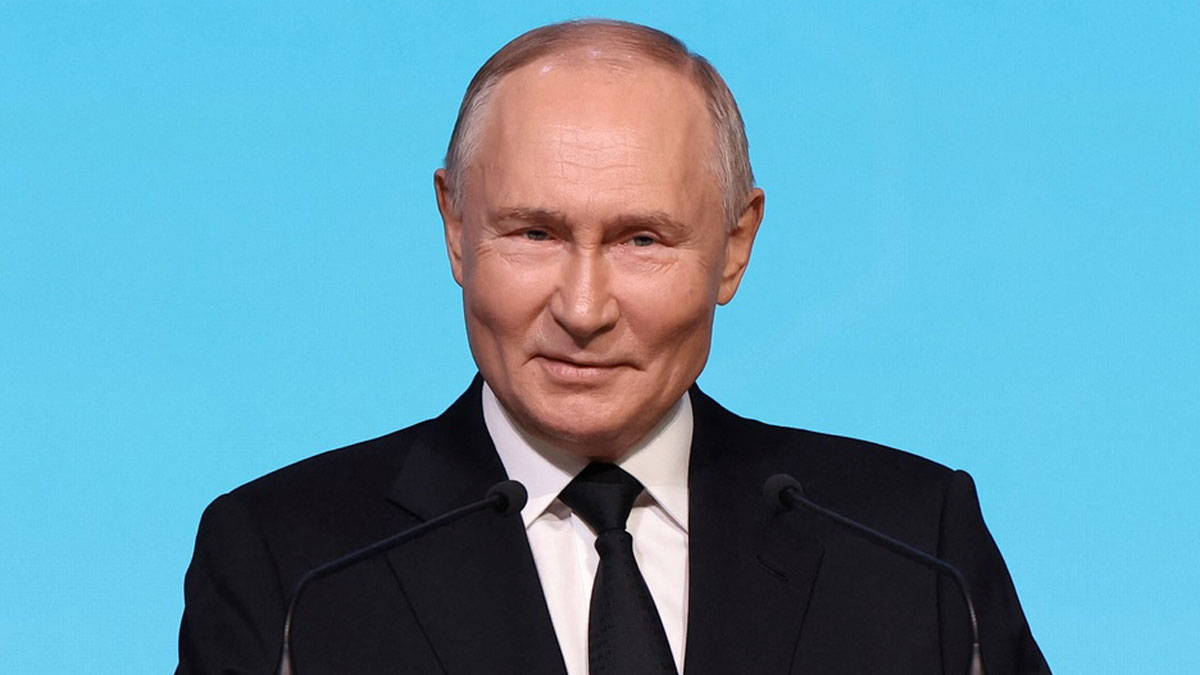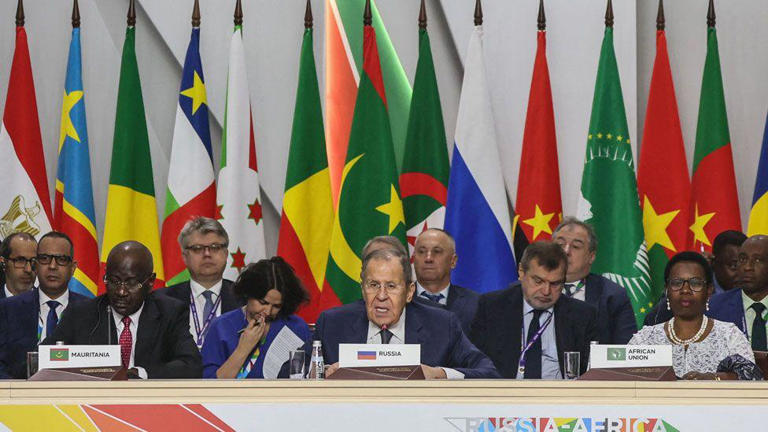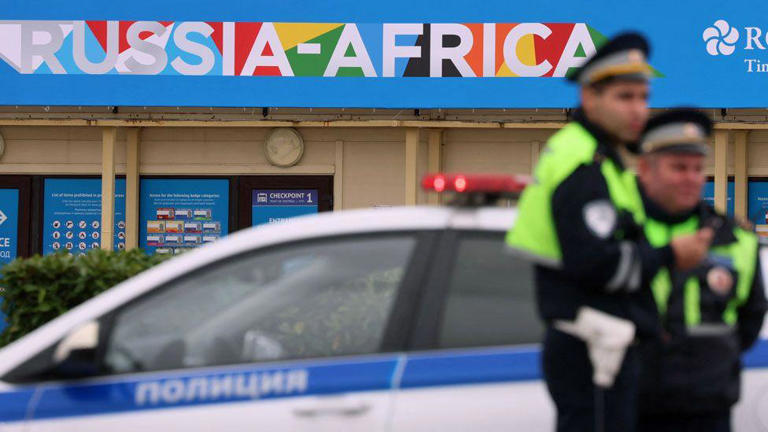
Our Correspondent | Africa Guardian
At a summit in Sochi, Russian President Vladimir Putin extended what he described as “total support” to Africa, offering assistance in the fight against terrorism and extremism. His message was delivered by Russian Foreign Minister Sergei Lavrov to African officials attending the conference.
The speech comes at a time when several African nations are increasingly seeking support from Moscow, distancing themselves from traditional Western allies. Many African governments, particularly those facing persistent jihadist threats, are turning to Russia for military aid and strategic partnership.
During the summit, Burkina Faso’s Foreign Minister Karamoko Jean-Marie Traoré expressed that Russia was a more fitting partner than France, the former colonial power, a sentiment echoed by Mali’s Foreign Minister Abdoulaye Diop. Diop emphasized the Kremlin’s “sincere” partnership in contrast to the “neo-colonial” relationship with Western nations. He highlighted joint initiatives between Mali and Russia in sectors such as energy, telecommunications, technology, and mining, noting that Russian companies are working alongside the Malian government to tackle local challenges.
Wagner mercenaries, now operating under the Russia Defence Ministry’s Africa Corps banner, have been instrumental in assisting military regimes in countries like Mali, Burkina Faso, and Niger. Although Russia’s support has been pivotal in protecting these junta governments, it has had limited success in combating Islamist insurgencies.
Unlike Western powers, Russia’s approach promises no interference in African countries’ domestic politics or elections, a factor appealing to many African leaders. However, despite the Kremlin’s support, progress in addressing the region’s security crises has been modest.
Despite these challenges, Russia’s growing influence in Africa is undeniable. Russian Foreign Ministry spokeswoman Maria Zakharova declared that the summit undermined Western efforts to isolate Russia. Lavrov affirmed that Russia’s ties with Africa were strengthening across multiple sectors, including trade, security, and development.
Putin’s address underscored this commitment, stating that Russia would continue providing “total support” to African nations in areas such as sustainable development, counterterrorism, combating epidemics, addressing food security, and assisting with the aftermath of natural disasters.
Rwanda, one of several African nations deepening ties with Russia, has signed agreements to develop nuclear energy with Russian expertise. Rwanda’s Foreign Minister, Olivier Nduhungirehe, noted that hundreds of Rwandan students have graduated from Russian universities, including those specializing in nuclear science.
While Putin had promised to double trade with Africa five years ago, this goal remains unmet. However, through strategic alliances, particularly in the military and resource sectors, Russia’s influence on the continent continues to grow, a fact that is reshaping the geopolitical landscape in Africa.
___


